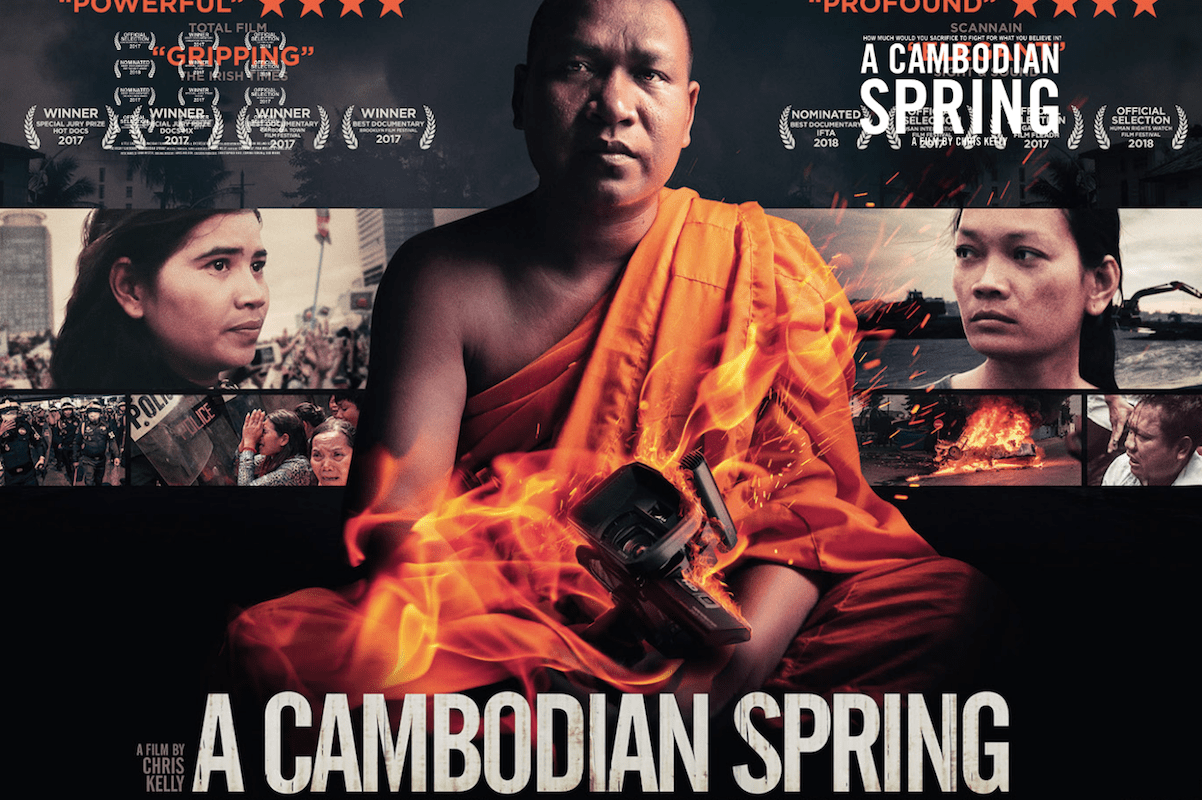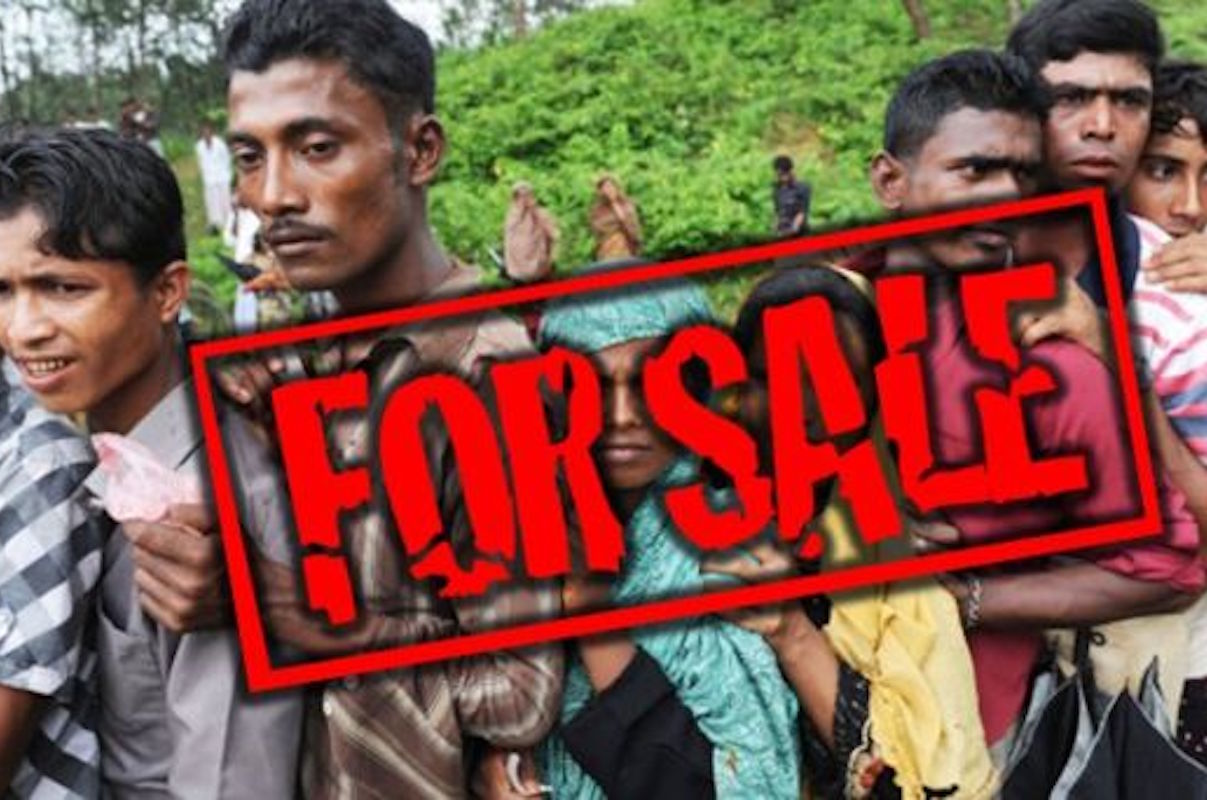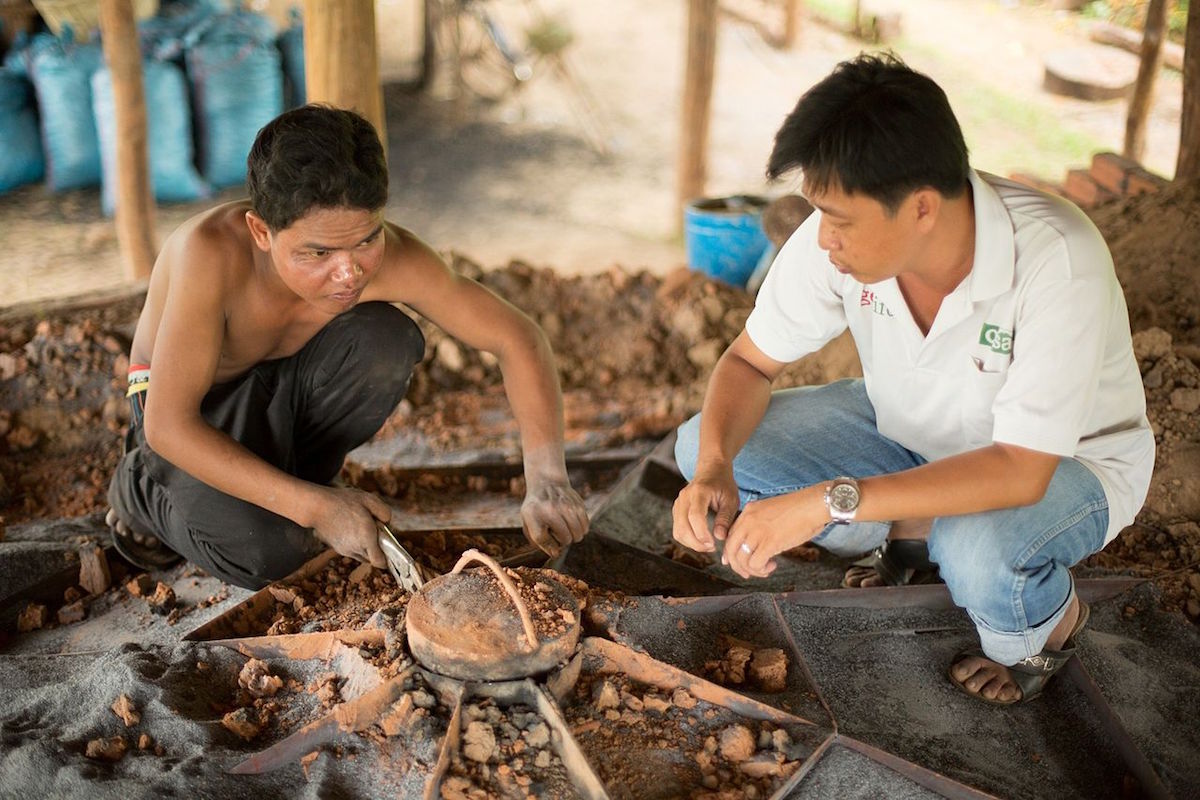Publicly being released today, A Cambodian Spring is an intimate and unique portrait of three people caught up in the chaotic and often violent development that is shaping modern-day Cambodia. Shot over 6 years, the film charts the growing wave of land-rights protests that led to the ‘Cambodian Spring’ and the tragic events that followed. This film is about the complexities – both political and personal, of fighting for what you believe in.
Director Chris Kelly said “A Cambodian Spring is for me a deeply personal film, which took nine years to complete. It is an exploration of what motivates us, what gives our lives meaning, and what happens when our personal desires colour and shape our actions. It is an unapologetically subjective portrait of my time in Cambodia, of the people who shared their lives with me and of the shifting landscapes, both physical and emotional, that I found there.”
A Cambodian Spring had its world premiere at the prestigious Hot Docs festival in Toronto, Canada in May 2017. The film won the Special Jury Prize for International Feature Documentary and has gone on to win many more awards and screened at film festivals all over the world including Busan, Docs MX and Antenna.
From Point of View: Review, “A Cambodian Spring”
Kelly’s original idea, eclipsed by later events, focused on local eviction protests, after several thousand families, living around Boeng Kak Lake in Cambodia’s capital city, Phnom Penn, were evicted for new development. The developers turned out to own a private company with close ties to the government. Kelly focused on three individuals, including two mothers of young children who led the Boeng Kak protest, Toul Srey Pov and Tep Vanny, close friends who later having a falling out. As well, the film follows monk and activist, Venerable Loun Sovath, who was censored and evicted by his Buddhist superiors when he became a leading figure in the protests against various land grabs and forced evictions. The so-called “multi-media” monk has chronicled police violence against protesters for international human rights agencies, and his footage provides some of the most disturbing scenes in the film.
More a sequence of moments lit by lightening than a comprehensive picture, Kelly’s film leave some big gaps, including the connections between the land protests and the mass hysteria that greets the return of opposition leader Sam Rainsy from voluntary exile for the 2013 national election. (Rainsy was banned from the country this past February.) Kelly’s decision to eschew talking-head analysis or provide much context is certainly problematic. But his emphasis on the private and public choices of the three protagonists makes this a relatable story and his approach impels viewers to do their own research and follow-up, itself a form of distant activism.
From The Irish Times: Irish film-maker investigates the rise of land grabbing in Cambodia
Loun Sovath is the best-known monk activist from the contemporary Independent Monk Network for Social Justice. His blog on YouTube, which calls for socially-engaged Buddhism, has repeatedly addressed deforestation, women’s rights and land rights. His Facebook live streams routinely attract more than 200,000 viewers across Cambodia.
“In 2009, businessmen and local authorities evicted 175 families from my village,” recalls Sovath. “Both my brother and my nephew were shot and injured. The people lost their land. They lost their rice. Many were taken to prison. The police and the company: they take the land from the farmers. I wanted to protect the farmland with my brother and my village. I wanted to stop the government and to get justice for the farmers. Buddhism must educate and help the people.”





